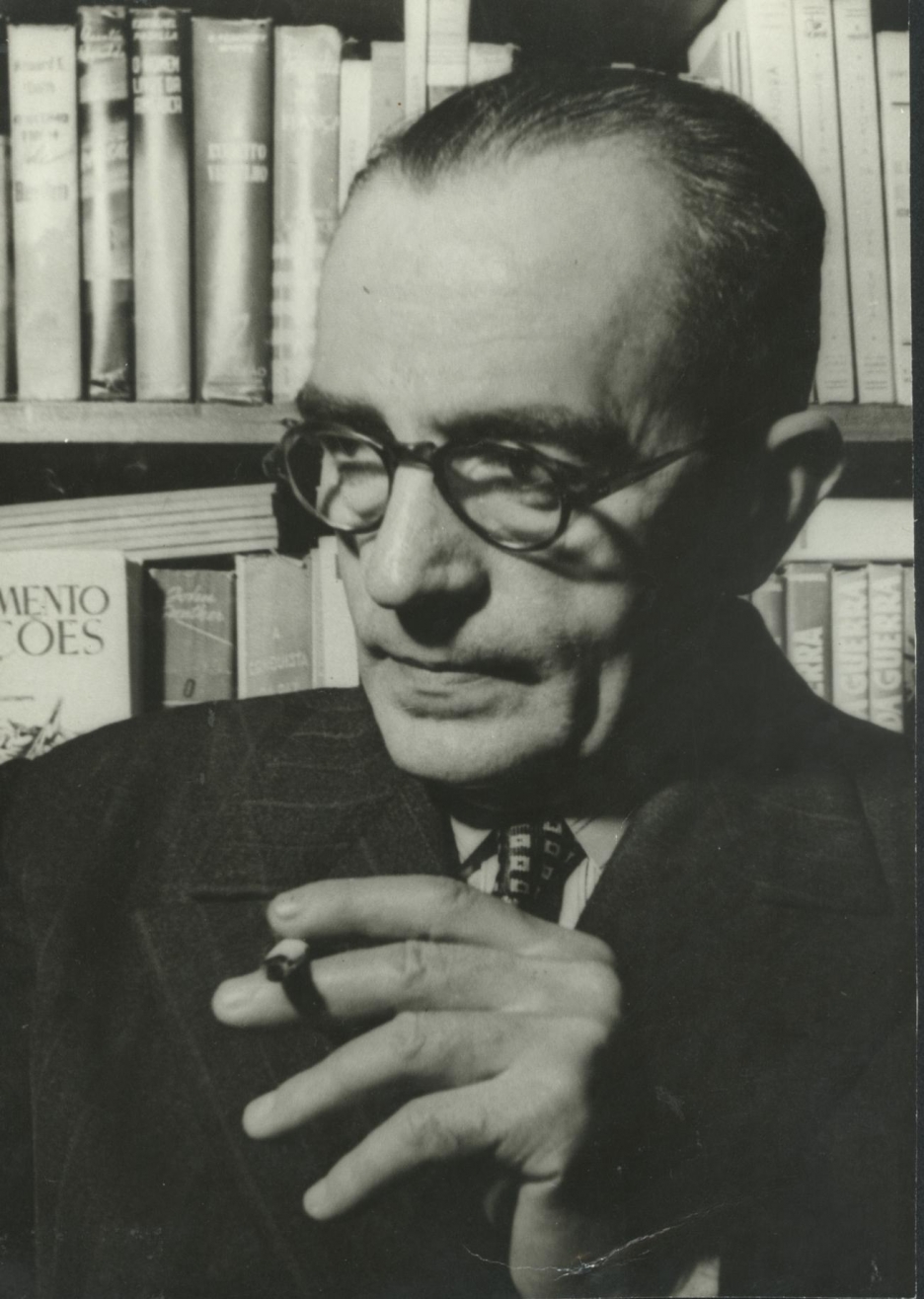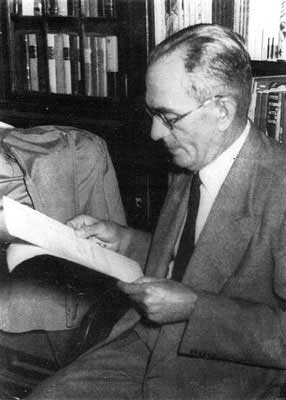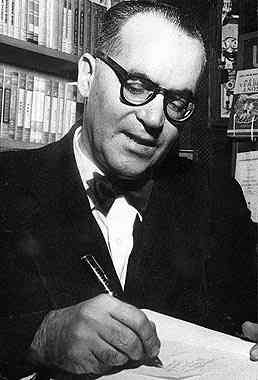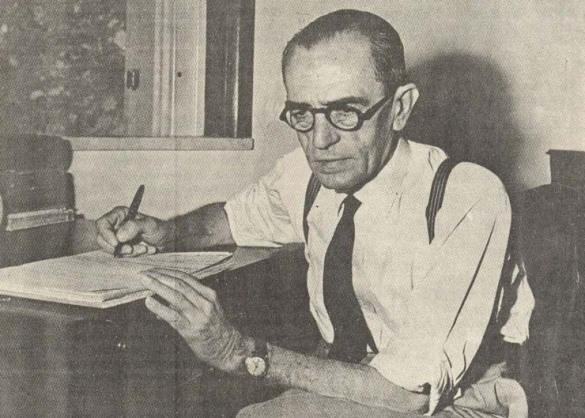<Back to Index>
- Mathematician Robert Alexander Rankin, 1915
- Writer Graciliano Ramos de Oliveira, 1892
- President of Venezuela Carlos Andrés Pérez Rodríguez, 1922
PAGE SPONSOR



Graciliano Ramos de Oliveira (October 27, 1892 — March 20, 1953) was a Brazilian Post - Modernist writer, politician and journalist. In most of his novels (more proeminently in Vidas Secas) he depicts the precarious situation of the poor inhabitants of the Brazilian sertão.
Graciliano Ramos de Oliveira was born in the city of Quebrangulo, in the Brazilian State of Alagoas, in October 27, 1892, to Sebastião Ramos de Oliveira and Maria Amélia Ramos. Graciliano was the oldest of the couple's 16 children.
He would spend most part of his childhood travelling through different cities of Northeast Brazil. After finishing high school in Maceió, he moved to Rio de Janeiro, where he would be a journalist for a short time, writing for the periodical O Malho under the pseudonym Feliciano de Olivença. Previously he founded in Maceió a periodic named Echo Viçosense: however, it only lasted two issues. In September 1915, he returned to the State of Alagoas, in order to live with his father, who became a merchant in the city of Palmeira dos Índios. Also in 1915, he married his first wife, Maria Augusta de Barros, having with her four children. Maria Augusta died in 1920, due to troubles during childbirth.
In 1927, Ramos was elected mayor of Palmeira dos Índios: he took office in 1928 and would abdicate his post in 1930. Mesmerized by the high literary quality of his prefecture reports, Augusto Frederico Schmidt would approach Ramos into publishing his first novel, Caetés, that Ramos started to write circa 1925. He would finish Caetés in 1930, but did not publish it until 1933. In 1928, he married his second wife, Heloísa Leite de Medeiros, having with her more four children.
From 1930 to 1936 he lived in Maceió. In 1934 he published the novel São Bernardo, but when he was about to begin writing another one, he was arrested due to alleged participation in the Communist Revolt of 1935. (Graciliano wrote an account of his time in prison named Memórias do Cárcere, published posthumously in 1953.) After being freed from the prison, he published with the help of associates (such as José Lins do Rego) his most famous novel, Angústia.
In 1938 he published Vidas Secas and moved definitely to Rio de Janeiro, where he became in 1945 a member of the Partido Comunista do Brasil. In the subsequent years, he travelled alongside his wife to countries such as France, Portugal, the Soviet Union and Czechoslovakia. Also in 1945 he published an account of his childhood years, named Infância.
Circa 1952, Graciliano's health gradually began to worsen. After an unsuccessful surgery, he was diagnosed with lung cancer and died on March 20, 1953. His wife Heloísa would die 46 years later, in Salvador, Bahia.
Graciliano is survived by one daughter and many grandsons and great - grandsons.
